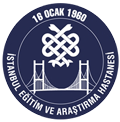ABSTRACT
Objective:
The aim of this study is to determine the level of social appearance anxiety and effects of acne severity on anxiety, depression and quality of life in patients with acne vulgaris.
Methods:
One hundred and fifty patients with acne vulgaris who were diagnosed at the dermatology outpatient clinic and 124 healthy controls were included in the study. Both groups were asked to fill in a t sociodemographic information form, the Social Appearance Anxiety Scale (SAAS) and Hospital Anxiety and Depression Scale (HADS). Also the patient group was asked to perform the Visual Analog Scale (VAS), Acne Quality of Life Scale (AQLS) and the Global Acne Grading System (GAGS).
Results:
SAAS values were significantly higher in the acne vulgaris group than in the control group (p<0.05). There was no difference of GAGS distribution, VAS value, the presence of anxietyandHADS (depression) scores between male and female patients with acne (p> 0.05). AQLS and SAAS scores of female patients were higher than in males (p<0.05). In addition, the presence of depression and HADS (anxiety) scores in female patients were higher than in male patients (p<0.05). The patients who had severe acne (with high GAG scores) had slightly higher AQLS values than the patients with mild acne (p<0.05). There was no relation between acne severity and anxiety-depression and social appearance anxiety.
Conclusion:
Acne vulgaris increases t social appearance anxiety. The psychological effects on female patients especially can decrease the quality of life and lead to depression and anxiety. When the severity of acne increases, the quality of life of all patients is impaired. Therefore, especially in female patients with acne, during the treatment and follow-up social and mental evaluation should be given.



